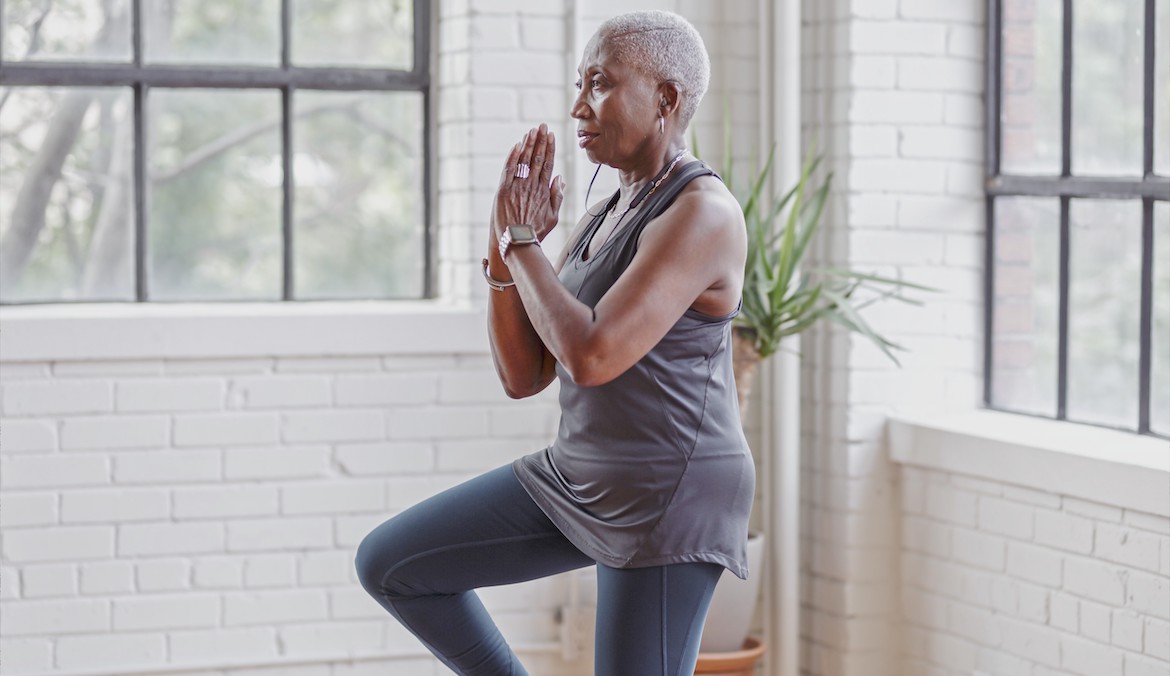
Currently, treatment for obesity is mainly based on pharmacotherapy or surgery. However, there are also other options. Individuals suffering from obesity may be able to benefit from education and support. Girls Make Your Move Campaign, for example, aims to encourage young women to become more active.
It is difficult to treat obesity. It is a multi-cause illness that is affected in many ways. This includes genetic factors, endocrine disorders, environmental factors, and psychological stimuli. Additionally, obesity can have adverse health effects that can affect the quality and quantity of people's lives. It's a serious health issue that comes with high costs for the health care system. The costs of obesity range from 2 to 7 percent of all health care spending in developed economies. The global economic consequences of obesity have been estimated at $2.0 trillion. The global mortality rate from obesity is 2.8 million people per year.

Aside from the negative effect it has on an individual's body, obesity can also negatively impact his or her economic and social lives. Obesity can raise the risk of serious medical problems, such as cancer, diabetes, and cardiovascular disease. In addition, obese individuals often face pervasive weight discrimination. They are often perceived as gluttonous, lazy, or lacking self-discipline. These stereotypes can have a negative impact on the treatment of obesity as well as access to services and treatments.
Because obesity treatment requires coordination of health care professionals, it is a multi-disciplinary matter. Lack of education and training in obesity treatment can lead to delays. Health care professionals need to be given more training and education to help patients manage their weight. Additionally, healthcare professionals should be encouraged and supported to have better weight management talks with their patients. This will improve patient care and quality.
Weight discrimination and stigma can also affect the treatment of obesity. It is vital to encourage efforts to eliminate weight bias. Education programs that combat weight stigmatization can also be used. In educating the general public about obesity, media reporting is a key tool. The media can help obese people get treatment.
The long-term treatment of obesity is a difficult task. It is essential to develop a systemic portfolio of initiatives that can improve outcomes across the socioeconomic spectrum. It is crucial to prevent childhood obesity. Children with obesity are more likely to remain obese throughout their lives. They are also more likely develop type 2 diabetes and heart disease. In school, obese students are also subject to weight-based bullying.

It is necessary to create a new public narrative about the treatment of obesity. It must be consistent and reflect the latest scientific knowledge. It must also address the negative social and cultural consequences of weight stigma. It will require the concerted efforts and participation of many stakeholders to alter the public narrative.
FAQ
How much should I weigh for my height and age? BMI chart & calculator
Use a BMI calculator to determine how much weight is needed to lose. A healthy BMI range should be between 18.5- 24.9. If you want to lose weight, then you should aim to drop about 10 pounds per month. Enter your height and weight to calculate your BMI.
To see if you're overweight or obese, check out this BMI chart.
Why is it important to live a healthy life?
Having a healthy lifestyle helps us live longer, happier lives. Regular exercise, healthy eating habits, healthy sleep habits and stress management can all help prevent strokes, heart disease, diabetes, and cancer.
A healthy lifestyle will improve our mental well-being and help us deal better with everyday stresses. A healthy lifestyle will help you feel more confident and younger.
What's the best diet?
The best diet for you depends on several factors, like your age, gender, weight, health conditions, and lifestyle habits. Also, consider your energy expenditure, your preference for low-calorie food, and whether you enjoy eating fruits or vegetables.
Intermittent fasting might be an option for you if your goal is to lose weight. Intermittent fasting is a way to eat only certain meals during the day instead of three large meals. This may be a better option than traditional diets with daily calorie counts.
Some studies suggest that intermittent fasting may improve insulin sensitivity and reduce inflammation, which can lead to improved blood sugar levels and reduced risk of diabetes. Other studies suggest that intermittent fasting could promote fat reduction and improve overall body structure.
What makes an antibiotic effective?
Antibiotics kill harmful bacteria. Antibiotics can be used to treat bacterial infection. There are many options for antibiotics. Some can be taken orally while others can be injected. Others are topically applied.
Antibiotics can often be prescribed for people who have been infected with certain germs. If someone has chicken pox, they might need to take an oral antibiotic in order to prevent shingles. Penicillin might also be administered to someone with strep throat. This will help prevent the possibility of developing pneumonia.
Doctors should prescribe antibiotics to children. Children are more susceptible to side effects from antibiotics than adults.
Diarrhea, the most common side-effect of antibiotics, is probably diarrhea. Other side effects include dizziness, nausea and vomiting, dizziness, stomach cramps, dizziness, allergic reactions, dizziness, dizziness, stomach cramps, diarrhea, nausea, vomiting, allergy, headaches, dizziness, dizziness, dizziness, stomach cramps, and stomach cramps. These symptoms usually go away after treatment ends.
Why does our weight change as we get older?
How do you tell if there are any changes in your bodyweight?
Weight loss occurs when there is less fat than muscle mass. This means that daily energy needs must be greater than the calories consumed. Activity levels are the most common reason for weight loss. Other reasons include poor eating habits, stress, hormone imbalances, certain medications and illness. When more fat is consumed than muscle mass, weight gain occurs. It happens when people eat more calories than they use during a given day. Overeating, increased physical activity and hormonal changes are all common reasons.
We eat less calories than we burn, which is the main reason our bodies lose weight. Regular exercise increases metabolism, which means that we burn more calories per day. This does not necessarily mean that we will get thinner. All that matters is whether we are losing or gaining weight. If we're burning more calories that we consume, we'll lose weight. If we consume more calories that we burn, then we are actually storing them in fat.
As we get older, our movement speed slows down and so we move less. We also tend not to eat as much food as we used to when we were younger. Therefore, we tend to put on weight. We also tend to look larger because we have more muscle.
There is no way to measure how much weight your body has lost without weighing yourself every week. There are many different ways to measure your weight. You can check your waist size, your hips, your thighs, your arms, etc. Some people prefer to use the bathroom scales, while some prefer to use tape measurements.
If you want to track your progress, you should try weighing yourself once a week and measuring your waistline once a month. You can also take images of yourself every few weeks to see how far it has come.
You can also check your height online to find out how many pounds you have. If you are 5'10" tall, and you weigh 180 lbs, then you would probably weigh 180 lbs.
Statistics
- In both adults and children, the intake of free sugars should be reduced to less than 10% of total energy intake. (who.int)
- Extra virgin olive oil may benefit heart health, as people who consume it have a lower risk for dying from heart attacks and strokes according to some evidence (57Trusted Source (healthline.com)
- According to the Physical Activity Guidelines for Americans, we should strive for at least 150 minutes of moderate intensity activity each week (54Trusted Source Smoking, harmful use of drugs, and alcohol abuse can all seriously negatively affect your health. (healthline.com)
- WHO recommends reducing saturated fats to less than 10% of total energy intake; reducing trans-fats to less than 1% of total energy intake; and replacing both saturated fats and trans-fats to unsaturated fats. (who.int)
External Links
How To
Ten tips for a healthy lifestyle
How to maintain a healthy lifestyle
We live in a fast paced world, where we don’t get enough sleep and smoke cigarettes. We don't properly care for our bodies.
If you are working full time, it can be difficult to keep a healthy diet and exercise regimen. If you feel stressed, it becomes more difficult. Your mind will tell you that this situation is too much so we end up feeling guilty and giving up.
You may feel that something is not right with your body. Consult a doctor immediately to get his/her opinion on your current condition. If nothing is abnormal, it might be stress due to your job.
Some people believe that their job allows them to exercise regularly, or they have friends who support them in staying fit. They are fortunate. These people have no problems. They had everything under control. I wish that everyone could be like them. Most people don't know how balance work and life. Many people develop bad habits that eventually lead to disease such as diabetes, heart disease, and cancer.
These are some tips to help you improve your life.
-
Get adequate sleep - 7 hours a day minimum, 8 hours maximum. This includes proper sleeping positions and avoiding caffeine during the last hour before going to bed. Caffeine blocks melatonin, which can make it difficult for you to fall asleep. Your bedroom should be darkened and cleaned. Make sure that you use blackout curtains especially if you are working late at night.
-
Take a balanced breakfast. Avoid sugary foods, fried foods, and white breads. For lunch, try to include fruits, vegetables and whole grains. You should eat healthy afternoon snacks that are high in fiber and protein. These include nuts, seeds beans, legumes, fish, cheese, and dairy products. Avoid snacking on unhealthy foods like chips, candy, cookies, cakes, and sodas.
-
Get plenty of water. Most people don't drink enough. Water helps us to burn more calories, keeps our skin looking young and supple, flushes toxins from our system and improves digestion. You can lose weight by drinking six glasses of water per day. You can check the color in your urine to see how well you are hydrating. A yellow urine color indicates that you are dehydrated. An orange urine color means that you are slightly dehydrated. Pink urine means that your hydration level is normal. Red urine means that you are overhydrated. Clear urine means that your urine is highly-hydrated.
-
Exercise – Regular physical activity is proven to improve energy levels, reduce depression, and even help you feel happier. Walking is an easy workout that can also improve your mood. Even though it may look easy, walking requires focus and concentration. Your brain needs to concentrate on walking, while taking deep breaths and slowing down. Walking for 30 minutes at a steady pace can help you burn between 100 to 150 calories. Start slow and build up gradually. Stretch after exercising to avoid injuries.
-
Positive thinking is crucial for mental health. Positive thinking can create a happy atmosphere within us. Negative thinking can drain our energy and create anxiety. Keep your motivation high by focusing on the things you want to do. Reduce the number of tasks you have to do in order to feel less overwhelmed. Be aware that you will fail at times, but don't despair. Just get back up and start over.
-
It is important to learn how to say no. We are often so busy, that we don't realize how much time we spend on unimportant tasks. It is important you can say No when it is necessary. Being polite when you say "no" does not mean that you are rude. You are simply saying "no" to something. You can always find a way to finish the task later. Set boundaries. You might ask for the help of someone else. Delegate the work to someone else.
-
Take care your body. Keep track of what you eat. Eat healthier foods to boost metabolism and shed extra weight. Don't eat too much oily or heavy foods as they tend to increase cholesterol levels. A good tip is to have three meals and two snacks daily. The recommended daily intake should be between 2000 and 2500 calories.
-
Meditate - Meditation can be a great stress reliever. You can relax your mind by simply sitting still and closing your eyes. This exercise will give you clarity of thought, which is very helpful in reaching decisions. Practicing meditation regularly will make you calmer and happier.
-
Breakfast is the most important meal for the day. Skipping breakfast may lead to overeating during lunchtime. As long as you have breakfast within one hour of waking up, it is not too late. Breakfast boosts energy and helps to manage hunger.
-
Healthy food is the best. Food can have a profound effect on our moods. Avoid junk food and food that contains artificial ingredients or preservatives. These foods make your body feel acidic, and can cause you to crave them. The vitamins and minerals in fruits and veggies are good for your overall health.
-
***